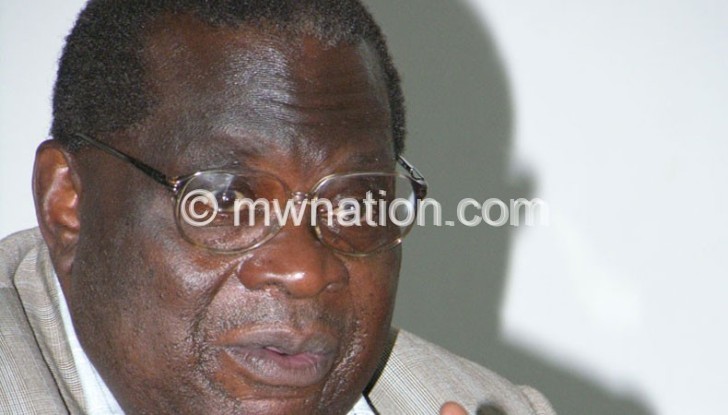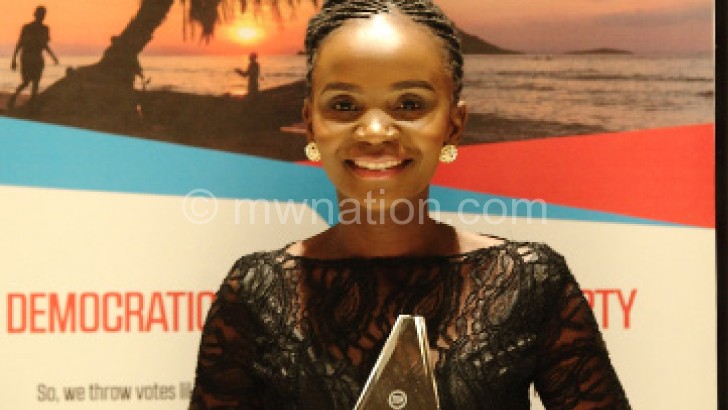Malawi speaks ending poverty
Malawians are tired of being poor and are no longer mincing words about how their own actions, mindset, and leadership can redirect the country to prosperity.
Currently, Malawi is one of the ten poorest countries in the world, and the global call to end poverty is a powerful sound that is shaking to the core young and old, leader and led, and, even the country’s long term development partners.
“The main challenge before us is the persistence of poverty—Malawi is just not winning this battle yet, with 70 percent of its population living below the poverty line,” said Laura Kullenberg, World Bank Country Manager for Malawi, when the country and the World Bank commemorated 50 years of partnership under the theme What Will It Take To End Poverty In Malawi.

A broad view of Malawi’s development since 1995 shows that growth rates have been low, and the country remains an outlier even compared to its peers that were at a similar stage of development in 1995.
“A key question that everyone ought to ask, particularly in leadership is, where did we go wrong and how can we get it right?” said Malawi’s Minister of Finance, Economic Planning and Development, Honorable Goodall Gondwe at the same commemoration event held in Lilongwe early in November 2015.
Malawians know where things went wrong and they have solutions. They expressed their views through essays, poetry, paintings, cartoons, and photographs through the End Poverty Competition organized by the World Bank as part of the golden jubilee commemoration. Close to 1300 entries were received, out of which 32 received awards, as selected by independent panels of judges drawn from across Malawian society.
“We see poverty as the most serious issue facing the country at 50 years-, one which requires reflection and brainstorming by the whole nation. This is why we launched the end poverty competition to encourage everyone to join the conversation and bring their good ideas,” said Kullenberg.
“Our real enemy is ourselves and our wasteful utilization of the available resources, be it is at the personal, household or national level,” said Weston Kusani, a winner in the essay category for those above the age of 40 combing through history to learn from the past.

Malawians further spoke of corruption, appetite to import just about anything instead of manufacturing locally, uncontrolled population growth, and failure to implement development plans, as key things that went wrong and are exacerbating poverty.
They also cite political leadership focused more on retaining power than developing the country – which Chikondi Dziko described as “a game of fortunes,” and ignorant embrace of democracy as major problems.
Whereas democracy would be considered a positive catalyst for development, there are opinions that this may not have been the case in Malawi.
“Democracy does not mean we should be unruly and destroy our own country,” said Cecilia Banda, whose observation was complemented by Vincent Nkhoma who said, “Democracy arrived without any sort of guidance as to what was expected of the citizens in the new political dispensation.”
Malawians also have plenty solutions to make the poverty clock start ticking for the better. They all point to transformation across the political, economic and institutional arenas.
Winston Mwale calls for consistent implementation of home grown development blue prints over time to facilitate sustainable transformation.

award for telling the end poverty story through photograpy
Contestants lamented short-term thinking “political leaders have a habit of not implementing long term plans because the benefits may not be felt during their presidency,” specified Emma Kishindo in her entry.
Many called for greater unity where all political leaders, work together to end poverty and achieve long term national goals. They also propose that Government should reduce over dependence on foreign aid, which Stan Kaunda said could cause leaders to feel more accountable to donors than the citizens.
The country’s agro-based economy was a major issue. Contestants observe that the dominance of low productivity subsistence farming has cost the country a huge development opportunity.
They say the country has grown food for consumption which has not been useful for sustainably eradicating poverty in the long term. Malawians proposed earnest diversification. “We need to understand that our half century economic “marriage” with our loyal and trusted partner “tobacco” is facing a blurred future,” said Thokozani Chipwanya.
As a long serving government official since the country’s independence in 1964, Minister Gondwe said for Malawi to successfully fight poverty, it needs citizens who work hard, earn what they have, exercise self-restraint, and are disciplined.
“You can have beautiful policies, the best policies, the best Government, or even have the World Bank, but if you lack discipline you will not make it,” says Gondwe.
After 50 years of partnership, the World Bank is still determined to help Malawi win the war against poverty.
“We stand ready to continue our long partnership and run with Malawi to a place we hope is not too far in the distance, where citizens have grabbed hold of their future and changed their destiny, where Malawi is on the move and has left poverty behind,” said Kullenberg. n




